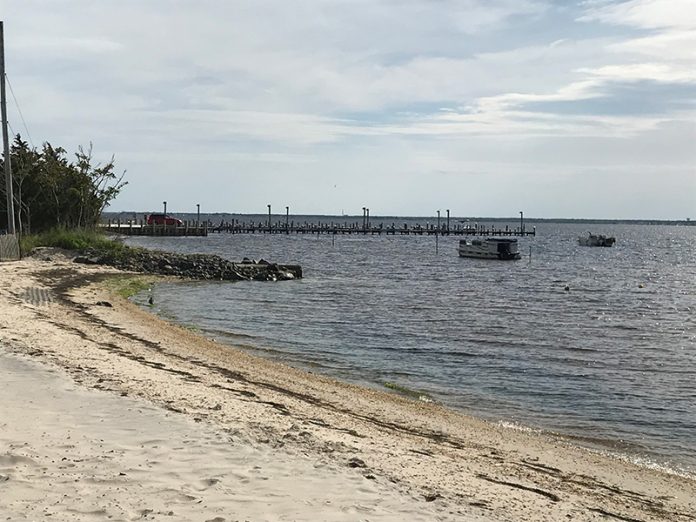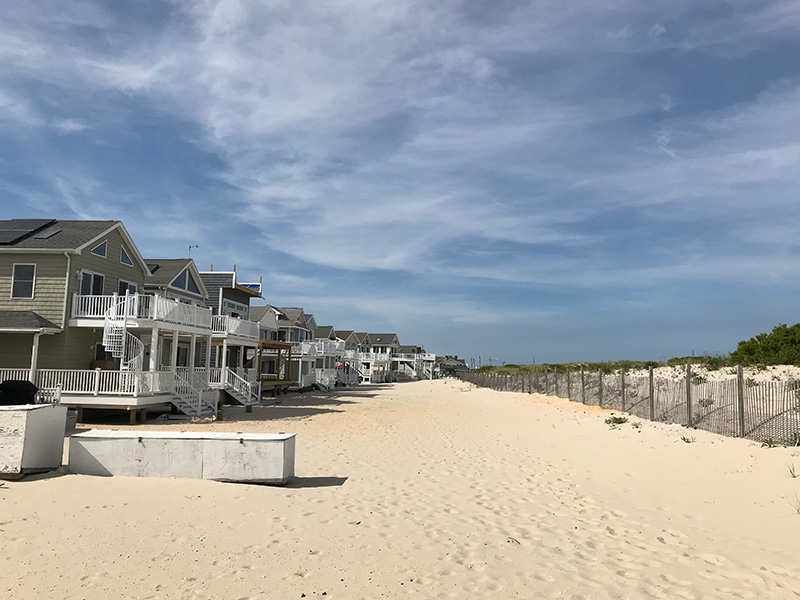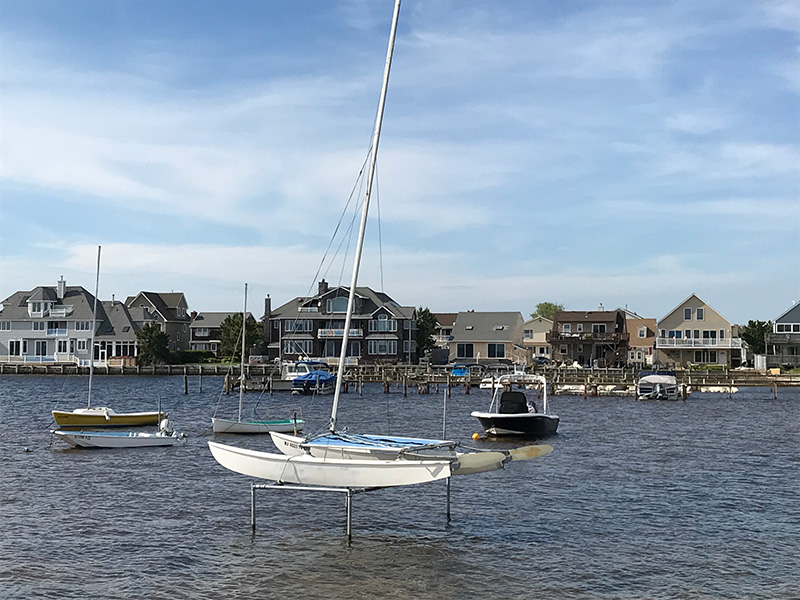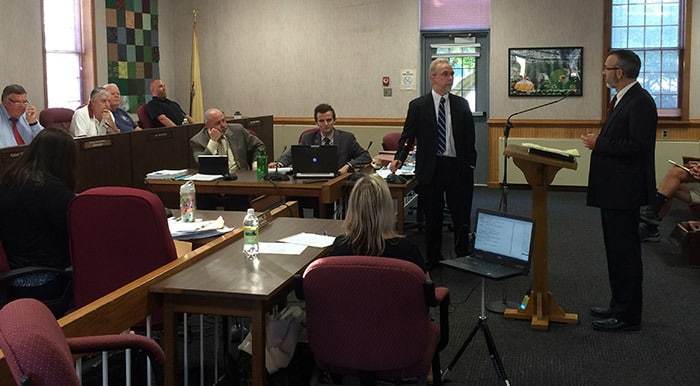
BERKELEY – A Superior Court Judge decided that South Seaside Park can leave Berkeley Township and petition to join Seaside Park.
Township officials announced that they will appeal this decision.
For many years, residents in SSP have claimed that they are not treated as equals by the rest of Berkeley. By a strange quirk of history, this area – which is between the borough of Seaside Park and Island Beach State Park – is part of Berkeley Township.
Shore residents usually pay more in taxes than mainland because it’s a desirable place to live. Some SSP residents have said they have felt marooned by the township, receiving less services. They feel that they have more in common with Seaside Park and might be better off there.
Tax Impact
Although the hearings discussed recreation, transportation, and a number of other issues, the main point on everyone’s mind is money.
It was once declared that SSP makes up about 10% of Berkeley’s taxes, despite being only 1% of their population.
If the taxes stop coming from SSP, and everything else remains the same, Berkeley would have to raise taxes on the rest of the town to make up for the loss. The sides disagree on what the impact would be.
SSP’s witness said that the average home in Berkeley, valued at $183,600, would see an increase of $35 a year. The township’s witness said the increase would be about $200 a year, which would increase in perpetuity.
The court opined that Bayville could make up for that loss by allowing more development on the mainland, agreeing with the plaintiffs that Berkeley would recover from it in about five years.
The court also said that Berkeley’s loss wouldn’t be felt as strongly because they would be spending less in services for that community.
SSP’s expert also said that they would see their taxes go down by 40% if they joined Seaside Park.

Long Trials
Resident Don Whiteman has been organizing SSP to make the change, which is officially called a de-annexation. There were 285 signatures from that neighborhood wanting to leave, which makes up about 66% of the area’s registered voters. There are about 1,400 properties in that section of town.
The Planning Board had 38 hearings on the issue from 2015 to 2019. In 2020, the Planning Board issued a resolution suggesting that the Township Council deny de-annexation. The Council agreed. Then SSP challenged the council’s vote in court.
Judge Marlene Lynch-Ford agreed with SSP that they should be allowed to de-annex.
The South Seaside Park Homeowners and Voters Association stated that the mainland is too far away for government services, if a resident has to do business with the town. If police, fire, or first aid is needed, it is most likely to come from a town on the barrier island instead.
However, recently, Berkeley did open a satellite building in a former real estate office in SSP that offers governmental services and also serves as a police hub. Similarly, the town has one of its summer concerts at SSP, and had the farmers market there as well.
“Our courts have considered not just the tax impact of de-annexation, but also the ability of the petitioners to have meaningful participation in religious, cultural, civic, charitable and intellectual activities of both the community from which they seek to secede as well as the community they wish to join,” Lynch-Ford said.
Citing case law, the judge said that the burden of proof was put on the SSP residents to show how Berkeley’s refusal to allow them to secede was “arbitrary and capricious.” They also had to show how they were going to be hurt by staying, and that Berkeley wouldn’t be substantially hurt if they left.
The court said that clear evidence of “bias, prejudice or collusion by a municipal body” means that the decision could be arbitrary and capricious.
The court found “a pattern of continuous acts and statements by members of the Township Council and the Planning Board reflecting opposition to the de-annexation.” It went on to say “The undisputed facts demonstrated by the petitioners leads this court to the conclusion that the outcome of this process was in fact predetermined…Rather than conducting a fact finding hearing, the members of the Planning Board became part of the adversarial process.”
Among evidence, the court noted that the Planning Board’s planner, Stuart Wiser, privately advised board members how to respond to concerns raised. He was not a witness, so SSP could not cross-examine him.
Additionally, the Planning Board and Township Council held joint meetings to discuss strategy. Planning Board members expressed during meetings and on their own time that they opposed de-annexation. Councilman John Bacchione, who is on the Planning Board, told members of the Italian-American Club “if South Seaside Park becomes Seaside Park, your taxes are going up.” Township Business Administrator John Camera, who is also at Planning Board meetings, testified that the SSP members were “elitist.” A Planning Board member who actually lives in SSP had a sign against the petitioners on his property.

There had also been arguments during the hearings about whether the Planning Board and professionals were truly neutral. The town pays the attorneys and engineers that work with the Planning Board, and the council approves their payments. So, would that mean they are working for the town, and are therefore biased toward the town? SSP’s attorney, Joseph Michelini, questioned the motives of the professionals providing testimony.
The court also decided that even being geographically distant from most of Berkeley is in itself a reason to leave. A SSP resident might have to drive through six towns to get to Town Hall. Berkeley has two other non-contiguous portions: part of Pelican Island, the land you touch down on first after you drive over the bridge to Seaside; and Manitou Park, which is north of South Toms River.
“It defies logic and common sense that the plaintiffs be obligated to traverse six or seven municipalities in order to integrate into the community, social and civic affairs of Berkeley Township,” she wrote.
“We are happy with Judge Marlene Lynch-Ford’s decision and the fact that she recognized the way Berkeley Township treated the petitioners from the outset of our action,” Whiteman said. “She found that the decision of the governing body of the Township of Berkeley, declining to approve de-annexation, was arbitrary, capricious and unreasonable.
“Judge Lynch-Ford also acknowledged the incongruity of our governing body being located six towns over the bridge and she agreed, based on her decision, that South Seaside Park residents are better served by a like-minded community that is contiguous to another town on the beach,” he said.

What’s Next?
Just because the court decided that SSP can leave, it doesn’t mean that it’s automatic.
“The governing body authorized our attorneys to immediately file an appeal to the decision. We strongly believe the trial court applied the incorrect standard of review under the statute,” Business Administrator John Camera said. “Additionally, the Judge decided that the remaining taxpayers of Berkeley Township have some kind of obligation to subsidize the petitioners attempt to lower their own taxes.”
The appeal process will likely take more than a year, Whiteman said. If the court still agrees with de-annexation, then SSP residents will have to vote on it. If they agree to leave, they still can’t if the Township Council won’t let them.
South Seaside Park would receive more care and Seaside Park’s taxes would go down if they joined, Whiteman said.







